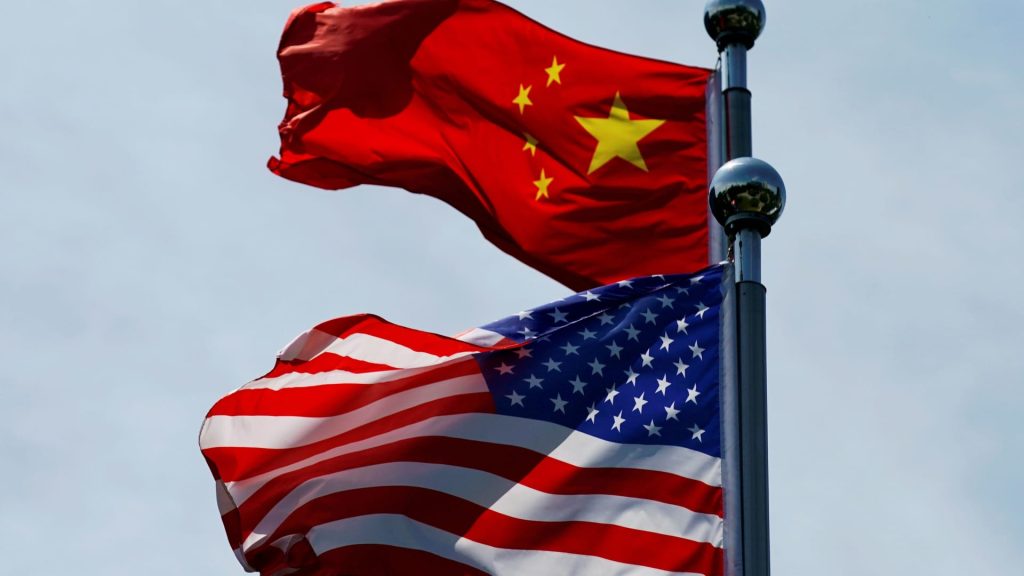In a recent development that has implications for global trade relations, China has vehemently opposed the United States’ introduction of additional tariffs on Chinese goods. This assertion, originating from China’s Ministry of Commerce, stressed that such tariffs would adversely affect U.S.-China trade relations and threatened countermeasures. As the situation evolves, the economic landscape could be reshaped, especially with China’s contemplation of retaliatory tariffs on U.S. agricultural products amidst heightened tensions.
| Article Subheadings |
|---|
| 1) China’s Official Position on U.S. Tariffs |
| 2) Implications for Trade Relations |
| 3) Previous Retaliatory Actions by China |
| 4) The Importance of Agricultural Exports |
| 5) Upcoming Economic Policy Announcements |
China’s Official Position on U.S. Tariffs
China’s Ministry of Commerce released a statement rejecting the recent decision by the United States to impose additional tariffs on Chinese imports. The ministry indicated that these tariffs, described as “harmful” to trade relations, are likely to prompt strong countermeasures from Beijing. Officials emphasized the need for dialogue between the two nations, urging the U.S. to reconsider its stance. This message reflects China’s broader strategy of diplomacy in the face of economic antagonism, positioning itself as a cooperative partner while firmly defending its trade interests.
Implications for Trade Relations
The introduction of new tariffs by the U.S. is poised to destabilize already fragile trade relations between Washington and Beijing. Analysts warn that as the effective U.S. tariff rate on Chinese goods reaches approximately 33%, with significant impacts on the costs of imports, backlash from China could escalate. This potential for tit-for-tat measures has significant implications not just for bilateral trade, but also for global markets impacted by uncertainty in trade policies. The interactions that follow may redefine trade agreements and invoke larger geopolitical consequences.
Previous Retaliatory Actions by China
Historically, China has not been hesitant to retaliate against U.S. tariffs. In February, following the initial tariff announcement, Beijing implemented countermeasures including increased duties on U.S. energy imports and placing specific American companies on an unreliable entities list. This list comprises businesses deemed untrustworthy, potentially hindering their operations within China. Such steps underscore Beijing’s commitment to protecting its economic interests and responding to perceived injustices, thereby highlighting the interconnectedness of trade and international relations.
The Importance of Agricultural Exports
In the context of U.S.-China trade, agricultural exports are of particular significance. With a notable focus on commodities such as soybeans, which account for a substantial 1.2% of total U.S. goods exported to China, the stakes are high. Recent analyses indicate these exports amount to approximately $22.3 billion. The U.S. agricultural sector is particularly vulnerable to retaliatory tariffs; thus, China’s consideration of tariffs on agricultural products could have a profound impact on American farmers and the broader economy, disrupting supply chains and market dynamics.
Upcoming Economic Policy Announcements
Amidst these tense trade negotiations, China is set to begin its annual “Two Sessions” parliamentary meeting, wherein key economic policies will be unveiled. Policymakers are expected to announce the nation’s gross domestic product (GDP) target and fiscal stimulus plans aimed at bolstering economic growth. These policy decisions will be crucial in shaping China’s economic trajectory and response to external pressures, particularly as the country navigates the challenges posed by increasing tariffs and a shift in global trade dynamics.
| No. | Key Points |
|---|---|
| 1 | China has officially rejected new U.S. tariffs and is prepared to take countermeasures. |
| 2 | The new tariffs could escalate trade tensions and impact global markets. |
| 3 | China has a history of retaliating against U.S. trade actions, as seen in previous measures. |
| 4 | Agricultural exports to China are vital for the U.S. economy, representing a significant share of trade. |
| 5 | China’s upcoming Two Sessions will reveal its economic policy plans in light of trade tensions. |
Summary
The escalating trade tensions between China and the United States spotlight significant issues affecting the global economic landscape. With China firmly rejecting U.S. tariffs and hinting at counteractions, the potential for retaliatory measures looms large. Observers are closely monitoring these developments, understanding that economic decisions made in this context could have far-reaching consequences for trade, agriculture, and diplomatic relations moving forward.
Frequently Asked Questions
Question: What are the new tariffs being implemented by the U.S.?
The new tariffs impose additional costs on a wide range of Chinese goods, elevating the total tariff rates on imports to approximately 33%.
Question: How is China likely to respond to these tariffs?
China has indicated it will take countermeasures, potentially including retaliatory tariffs on American agricultural products and other sectors.
Question: What impact do tariffs have on global trade?
Tariffs can disrupt trade flows, increase costs for consumers and producers, and may lead to uncertain economic conditions, affecting businesses and international relations.
